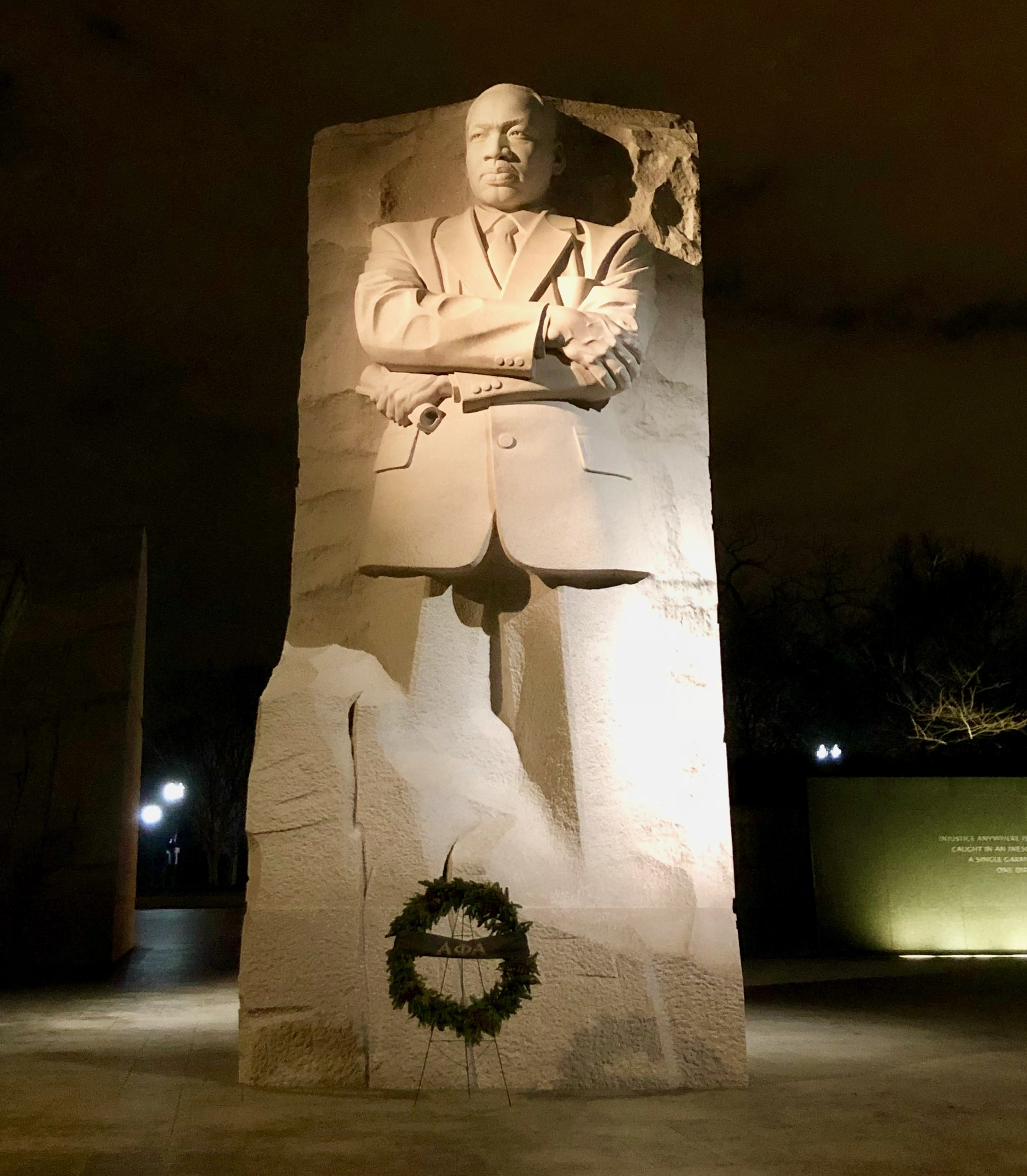By Gilberto Amaya, SUDECC Team
2019 MLK Birthday Celebration
Seeking Recognition, Justice and Development
Dr. Martin Luther King Day is a day of reflection and service to community. We reflect on the past to acknowledge the progress we have achieved as a result of struggles from over a half of century ago. But it is also a time to think about the future, the legacy from our generation and the prospects of our young people for a good life, in a fast-changing world, more often than not, changing for worse; in societies fraught with targeted violence against “minorities,”especially against black young men.
Yesterday, I attended an MLK Day commemoration event in my community of Reston, VA, one of the most recognized MLK Celebration in the Washington, DC region. I had the privilege to co-chair the event in the past, to highlight the global impact of Dr. King and the influence of the Civil Rights movement of the 1960s in the development of leadership and the organized movement of peoples of African-descent in Latin America and around the world. Reston, VA has distinguished itself as a model for progressive-multicultural communities around the world.
For the 2019 events, the guest speaker was De Ray Mckesson, a brilliant young organizer, activist and author from Baltimore, MD. He was also promoting his new book On the Other Side of Freedom: The Case for Hope.I was saddened to see that, unlike events from years gone by, the attendance was small—it was a paid event, and those attending were about 50% senior citizens, in about equal numbers of white and black, and 50% middle and high school students, who probably were getting school credits for attending. For me, this illustrates the erosion of the enthusiasm and growing skepticism about the future regarding the ever present issues of equity and justice. In the Q&A segment, young people expressed anxiety about growing violence in their lives and communities, and the entrenchment of radical ideas creating deeper wedges in society.
Our societies do not see our internal differences. We are all lumped together as a group and treated according to the color of our skin, regardless of where we come from or our personal accomplishments as individuals. Another quote from Dr. King comes to mind: “We must learn to live together as brothers or perish together as fools.”Achieving our goals as a people in any society, the US, for example, which brands us as a small—and getting smaller—minority, according to the US Census Bureau, begins by knowing how many we are: what an accurate counting means for our communities in terms of resources and services like education, health, representation in the corridors of power, et cetera.
For the reasons stated above, in the upcoming 2020 Census in the US, we must make sure to count as black, regardless of the region we or our parents migrated from. We need to avoid the current fragmentation of the black population in the US Census, and show our real weight in the total population. Only then, we can get the recognition that we deserve and position our communities for a greater participation in our society and share in its prosperity. There are too many of us, even being counted as white because we come from regions like Northern Africa or the Middle East. Although many of our brothers and sisters may feel comfortable with this categorization, it is important for them to know that it is only for census purposes. You do not enjoy white privileges. In your everyday life, you partake of the daily struggles of all black people.
As the Census numbers everywhere require self-identification, and many of our people, because of the stigma associated with the term, struggle with the idea of identifying themselves as black, we have a great challenge ahead of us, especially with many Afro-Latinos. However, we can all benefit from showing our real numbers and the real weight of our population in all the societies in which we live. Everywhere, we are at the bottom of the economic ladder. Being counted as a block will benefit us all as a people regardless of our region of origin. Again:
“We must learn to live together as brothers or perish together as fools.” Dr. Martin Luther King, Jr.




